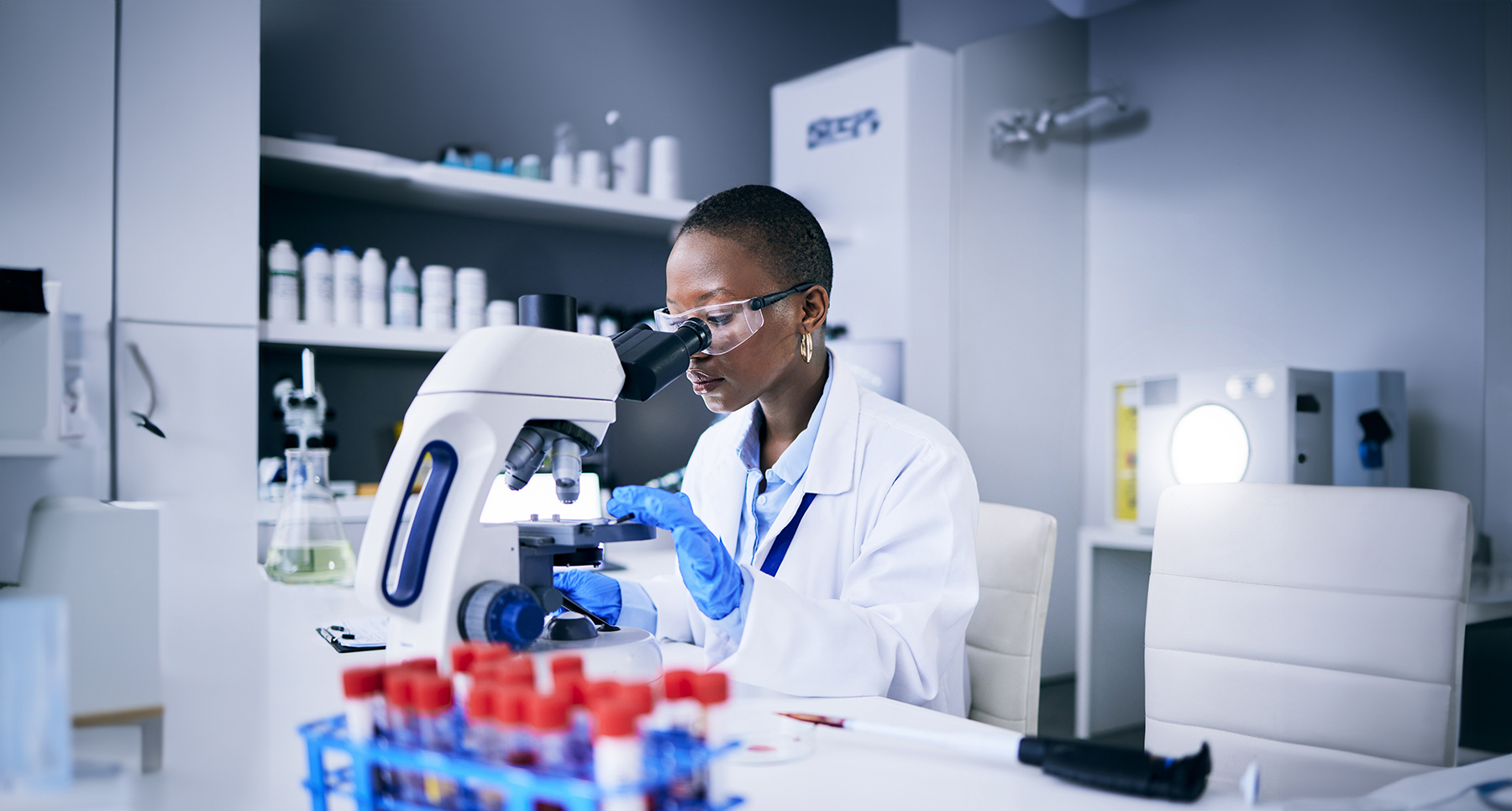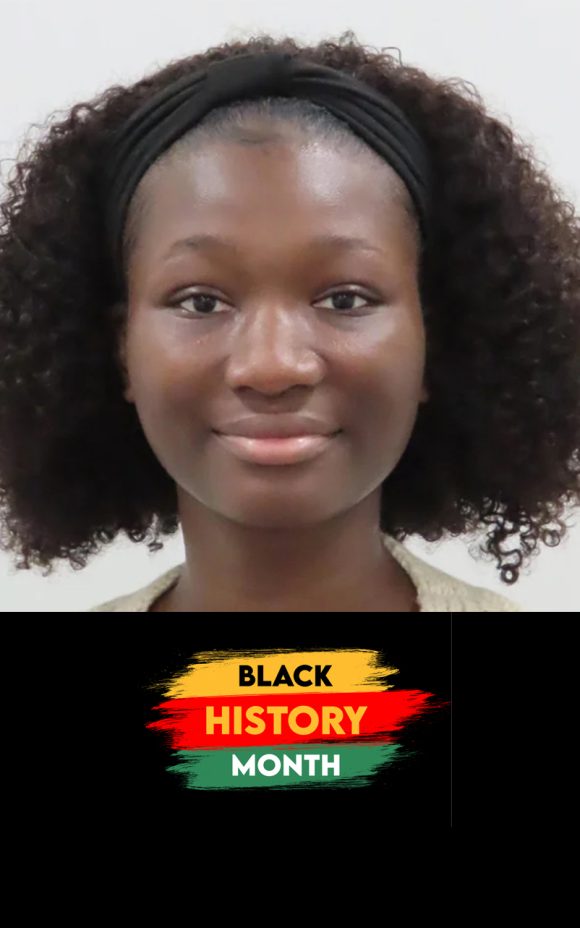
This Black History Month we spoke with some of MUSICC’s consortium members from the Black community to talk about their work in MUSICC, their career pathways and learn a little bit about who they are.
Alberta Ateere is a DPhil student and Research Assistant at The Jenner Institute, University of Oxford. Alberta tells us about her current work analysing study participant samples, as well as the challenges in balancing a full-time job while being in charge of her own DPhil project.

Connect with Alberta on LinkedIn | More about Alberta on The Jenner Institute
What are you working on in MUSICC: in the past, now, or soon?
I’m currently working on a coronavirus dose finding infection study. The aim is to evaluate the effectiveness of an inhaled vaccine versus a placebo in a human challenge study.
What is a typical day like for you?
A typical day for me as a Research Assistant (RA) will involve processing trial samples. This involves isolating immune cells from study participant’s blood samples, to analyse immune responses to the virus. Within the tuberculosis (TB) group, headed by Helen McShane, we do both TB and COVID-19 studies, so my job involves processing samples across all these trials. But as a DPhil student, part of my work will also involve running laboratory tests for my research project using samples collected from past COVID-19 trials. I am currently analysing antigen-specific B cells.
What was your career pathway and why did you choose it?
I started thinking I wanted to be a biomedical scientist but after doing my undergraduate degree I realised that I preferred research and more involved lab work, than this would allow. I decided to do a master’s degree in immunology because I was interested in that module the most during my undergraduate degree. A month after I completed my master’s degree, I got a job as an RA in Helen McShane’s lab to work on a COVID-19 study. I have been part of the TB group since January 2022 and started my DPhil in October 2024.
Did you have a role model that influenced your career?
I don’t think I have a specific role model, but I am inspired heavily by my colleagues. Being at the Jenner Institute has exposed me to a vast number of people I may never have encountered. The work that has come out of the Jenner Institute and actively being in an environment where I get to see ‘behind the scenes’ is really inspiring. The people I work with in my group, and the Jenner Institute as a whole, are not only dedicated to their work and what they’re doing but also care about the impact of their work outside of the scientific community. There is a lot of work that goes into ensuring that what we do is ethical but also innovative enough to make discoveries. All this to say, no role model but the openness and diversity have exposed me to people and careers I never would’ve considered before.
What have been some of your biggest achievements and challenges in your career?
One of my biggest achievements this year is completing a set of experiments for my DPhil project. After optimising and ensuring that laboratory tests are working, being able to complete a set of experiments for one trial feels very good. But in the same vein one of the biggest challenges is moving from the mindset of an RA to a student. As an RA you’re working within a team of people who are all able to help pull together to complete a massive project. You don’t have to do everything.
But as a student, I need to become a bit more independent in terms of where I want my project to go and I need to think about the best possible way to answer my questions. Although I still have people I can talk to and think through possibilities, I need to ensure that the concept and plan make sense. I’m ultimately in charge and to switch from being part of the team to being the one solely responsible for the movement of the project has been a bigger jump than I imagined it would be. But this isn’t necessarily bad because it’s allowed me to activate a different perspective and understanding.
What (or who) has motivated you in difficult times of your career?
Many of the RAs and students within my group (and outside). Working with people who have been in my shoes before, can relate to how it feels to be stuck or helping me change perspective and see things from a different point of view has been a good motivator.
In ten years, what do you hope to have accomplished in terms of your work?
In 10 years, I’m expecting my career to tell a story that I have not even thought about yet. I think I am so open to what to do next I just want to look back in 10 years and say that I got to do all the things I can 100% say I had a passion for and absolutely wanted to do.
What does working on MUSICC mean to you?
Working on MUSICC means innovation for the future of respiratory vaccines. I think that the work being done by this consortium of academic and industry professionals is amazing. The sheer level of dedication that is being showcased through each part of the project and the support that each research group gives to one another is a great signal of how collaboration can move research forward.
How do you feel about the current environment for Black people in science?
There are already a fair few Black people in science but in terms of the environment itself, the nature of science encourages a wealth of open-minded individuals who are, more often than not, open to learning from others. For those I have interacted with within this space there’s a shared focus on the knowledge and unique ways to understand our respective discipline. Although I cannot speak for all Black people, as experiences and environments can change depending on where a person is in their career and also where they are located.
Did you have any obstacles or prejudices you had to overcome in your career?
No I cannot say that there have been any direct prejudices that I have had to overcome in my career so far. Fortunately, my experience in my career has led me to meet the kindest people who do not care so much about the colour of my skin but instead care about and acknowledge the contributions that I make in the teams that I work in.
How do you think we could we encourage more Black people to engage with science?
I think being aware of careers and the ways that people can contribute to science. In terms of career pathways, partnering with organisations such as Black Pharma, who helped me find the job role as an RA, and the Black Women In Science (BWIS) Network are a great start. But also outreach to students in secondary schools before they have to decide what they want to do at university, especially in areas with high populations of Black students. Letting people see that there are options for them in these fields will, at the very least, allow for curiosity.
In terms of public engagement, I think educating Black people on the importance of their engagement with science and how participation in clinical trials can also benefit them is important. There is often a lot of misunderstanding on the importance of getting a representative cohort of people for clinical studies and especially for conditions and diseases that disproportionately affect Black people. I understand it’s often hard to encourage engagement because there is so much resistance, but I think the answer is to persevere rather than give up. And I believe that the education and importance of participation and engagement begins with young people, through conversations with friends and family, at home.
Is there anything you’d like to say to young Black audiences in particular?
I think there’s often a big focus on tech when we think about STEM, but science deserves love too. The work that is done in science informs so much of everyone’s day to day life. We cannot say we are left out of conversations if we are not willing to also involve ourselves in the process. Specifically, in terms of infection and disease prevention and how drugs and vaccines work and interact with the physiology of those, not just from different races, but from different backgrounds, ages and sexes as well. The work requires active participation.
What does Black History Month mean to you?
Black History Month to me means celebrating and acknowledging the previously hidden contributions of Black people throughout history, whilst also highlighting the current and ongoing contributions and obstacles that are happening today.
Do you come from an academic family?
I would say so. It was important for my parents that me and my siblings all got degrees.
Besides your scientific interests, what are your personal interests?
My personal interests are quite varied, in general I like learning new things. I am currently learning how to swim properly again. I want to improve on my swimming techniques but after that I plan on learning how to play tennis. I also love to read, mainly fantasy, but I have recently been more interested in African literature. Being part of the African diaspora, my own understanding and knowledge of Africa is filtered through a very specific lens. I also really enjoy travelling and getting to see new places and experience things that I normally wouldn’t be exposed to in the UK.
Is it challenging to manage both your career and private life? How do you manage both?
Yes, I think as a child, adulting didn’t looks as scheduled as it actually is. The reality of having to be more intentional and organised when it comes to making time for work, studying, as well as friends, family and hobbies has been challenging. I have tried to make sure that I do not take work home with me. My aim is to stay in the office for as long as I need, to get work done so that home can be home and work can be work. Only in specific circumstances do those lines blur. I have found that this encourages me to be very disciplined in how I operate throughout the day, to ensure that I get my work done.
If you had the option to give advice to a younger version of yourself, what would that be?
You can change your mind and put yourself out there more to experience different places and paths.

31st October 2025